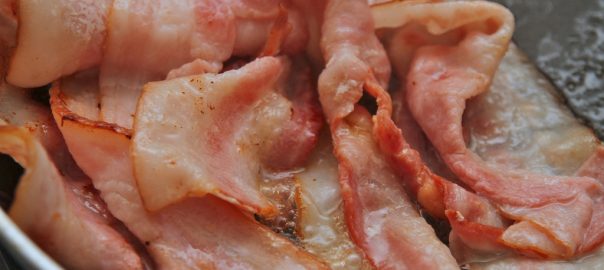I was on a conference call yesterday in somewhat of a stealth mode and listening in on the dialog between a Bostonian and a couple of colleagues.
One particular colleague commented that he had seen an email with an attachment that had a photo of an English breakfast attached. The email had been sent to another colleague who I have never quite ascertained the origins of, he could be British or Afro-Caribbean – I am not sure. Either way, the way he speaks is pretty posh and definitely more posh than me and easily mistaken for British or even English even if he is not.
The photo in question was from another colleague, an American, a young American and presumably someone who possibly had never been to Britain before. Either way, he was looking for validation as to whether the breakfast he was having, was in fact a full English breakfast or some pale facsimile.
At this
I almost fell off my chair at the absurdity of the comment and here is why.
Bacon plays a key role in the cooked breakfast on both sides of the pond, but Americans who have happened up a “full English” of baked beans, fried tomato, eggs, mushrooms, black pudding and all, quickly realize that British bacon is different from American bacon.
American bacon is generally served in narrow crispy strips, that conceal streaks of fat. British bacon (much of which comes from Denmark!
British bacon, like American
The cut is what makes all the difference.
American bacon is streaky with fat because it comes from the pork belly, ironically one of the fattiest parts of the pig.
Bacon rashers, on the other hand, are cut from the loin, located in the middle of the pig’s back where the meat is leaner.
The cut of meat that’s used for British bacon is actually the same cut like pork tenderloin or loin roast, just sliced and cured differently.
more irony is the fact that one of the reasons it is difficult find back bacon in the United States is because back cut of bacon cannot be legally called bacon in the US.
The definition of bacon has been created and enforced to the U.S. Department of Agriculture, which explains in its labelling policies that the word “bacon” in the United States only refers to “the cured belly of a swine carcass.”
Bacon made from other parts of the pig must be labelled as such—like “pork shoulder bacon.”
If you had any doubts about the real differences, take a read of Luke Bailey’s post on buzzfeed with all essential comparison photos!
